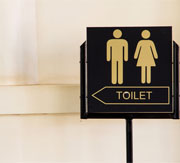< Return to trials
Overactive Bladder

Overview
Lillestol Research has trial experience in the overactive bladder (OAB) indication/diagnosis. The trials have varied in phase, enrollment criteria, and duration. Our research patient database also presents over 400 hundred patients with this diagnosis that would be interested in clinical trial participation.
Spotlight Trial(s)
This was an investigational product, placebo-controlled trial evaluating the effectiveness of IP on persistent overactive bladder symptoms. Lillestol Research was able to successfully meet the sponsor’s enrollment expectation randomizing 4 patients in an 11-month enrollment period.
Definition
Overactive bladder(OAB) is a problem with bladder-storage function that causes a sudden urge to urinate. The urge may be difficult to stop, and overactive bladder may lead to the involuntary loss of urine (incontinence).
Description
With overactive bladder you have many strong, sudden urges to urinate during the day and night. You can get these urges even when you have only a little bit of urine in your bladder. OAB is very common in older adults both men and women can have it, but it's more common in women.
Overactive bladder is a kind of urge incontinence but not everyone with overactive bladder leaks urine. Even without incontinence, overactive bladder can make it hard to do the things you enjoy. The need to drop everything and race to the bathroom can disrupt your life and if you leak, even if it's only a little bit, it can be embarrassing.
OAB can cause other problems too. Hurrying to the bathroom can lead to falls and broken bones and can also cause sleeping problems, depression, and urinary tract infections.
Many people are too shy to talk about their bladder problems. But overactive bladder can get better with treatment. Don't be afraid to talk with your doctor about how to control your overactive bladder.
Cause and Symptoms
OAB occurs because the muscles of the bladder start to contract involuntarily even when the volume of urine in your bladder is low. This involuntary contraction creates the urgent need to urinate. There are many things that can make this muscle overactive, it can be caused by a bladder infection, stress, or another medical problem. Some brain problems, such as Parkinson's disease or a stroke, can also lead to overactive bladder but in many cases, doctors don't know what causes it.
Some medicines can also cause overactive bladder. Talk with your doctor about the medicines you're taking to find out if they could affect your bladder. But don't stop taking your medicine without talking to your doctor first.
The main symptoms of overactive bladder are:
- An urgent need to urinate.
- The need to urinate often.
- Waking up to urinate 2 or more times a night.
- The need to urinate even if you have just gone to the bathroom.
- Taking many trips to the bathroom only to urinate just a little bit each time.
- Leaking urine when you have the urge to urinate.
You may have some or all of these symptoms.
Tests and diagnosis
Your doctor will do a physical exam. He or she will ask what kinds of fluids you drink and how much. Your doctor will also want to know how often you urinate, how much, and if you leak. It may help to write down these things in a bladder diary for 3 or 4 days before you see your doctor.
Your doctor probably will also do a few tests, such as:
- A pelvic exam if you are a woman.
- A rectal exam if you are a man.
- A urine test.
- A blood test.
You may have more tests if your doctor thinks your symptoms could be caused by other problems, such as diabetes or prostate disease.
Sources
If you have been diagnosed or believe you have overactive bladder contact us today to learn more about our current study opportunities for this diagnosis.
Call us at (701) 232-7705 or toll-free at (866) 532-7705
Signup online or email our recruiter at recruiter(at)lillestolresearch(dot)com.
Your information is always kept confidential.